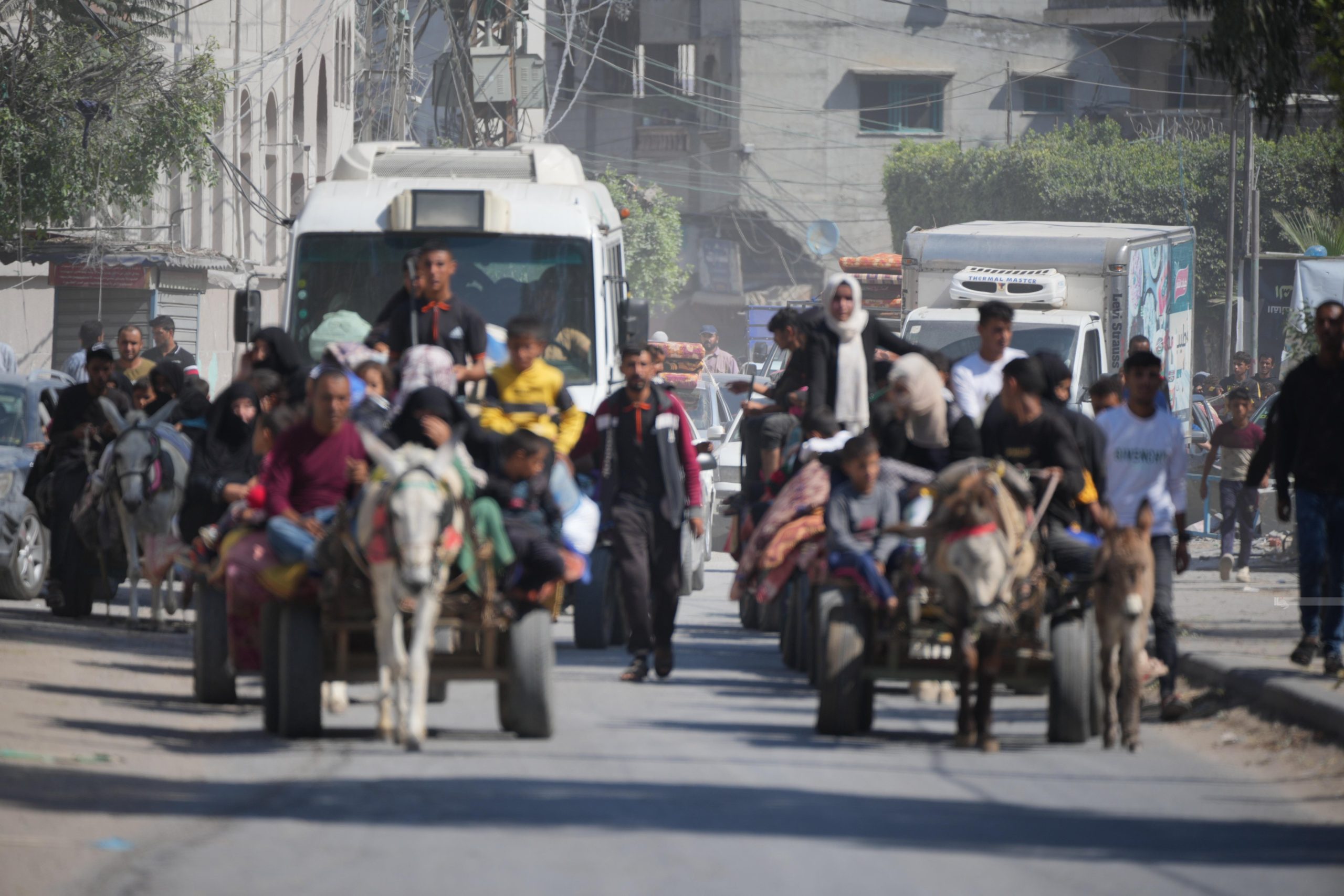While a source familiar with the matter confirmed to Doha News that no deal has yet been reached, the report claimed the framework for the six-page deal was drafted in Doha.
A top US official has denied claims of a tentative deal being made between Israel and Hamas to release dozens of captives as Israel continues its relentless onslaught in Gaza.
National Security Council Spokeswoman Adrienne Watson confirmed the current status of the negotiations following a report by The Washington Post that suggested a tentative agreement between the conflicting parties.
“No deal is reached yet,” Watson stated. “We have not reached a deal yet, but we continue to work hard to get to a deal”.
Since the start of the Israeli aggression on October 7, United States and Qatar have taken the lead in negotiations to free captives held by Hamas in Gaza as part of wider de-escalation efforts.
The weeks-long deadly Israeli war has killed more than 12,000 Palestinians and flattened much of the besieged Gaza Strip, forcing more than 1 million locals into displacement in the south.
On Saturday, The Washington Post reported on an alleged tentative deal that would secure the release of dozens of hostages, in exchange for a temporary cessation of hostilities over the next few days.
The proposed arrangement includes a freeze on combat operations for at least five days, during which an initial batch of 50 or more captives would be released in smaller groups every 24 hours.
While a source familiar with the matter confirmed to Doha News that no deal has yet been reached, the report claimed the framework for the six-page deal was drafted in Doha, where representatives from the United States, Israel, and Hamas met, facilitated by Qatari mediators.
It said the high-stakes diplomatic negotiation saw the involvement of notable figures, including CIA Director William Burns, who visited Doha last Thursday. Meanwhile, White House senior official Brett McGurk is expected to travel to Doha on Sunday to further these talks.
During a press conference in Doha on Sunday, Qatar’s Prime Minister and Foreign Minister Sheikh Mohammed bin Abdulrahman Al Thani warned against media leaks on the ongoing negotiations which could hinder progress.
Biden pushes for captive release ‘without further delay’
Meanwhile, US President Joe Biden reportedly urged Qatar’s Amir Sheikh Tamim bin Hamad Al Thani for the immediate release of captives seized by Hamas.
During a phone call with the amir, Biden “discussed the urgent need for all hostages held by Hamas to be released without further delay,” a White House statement said on Friday.
According to Israel’s Channel 12, that came after Israeli Prime Minister Benjamin Netanyahu made a direct call to President Biden, urging him to put additional pressure on the Qatari leader during a War Cabinet meeting on Tuesday night.
Netanyahu’s request focused on broadening the scope of the captives included in the ongoing negotiations led by Doha.
Aside from the captives issue, the two leaders also explored avenues to increase the flow of desperately needed humanitarian assistance into Gaza, where the humanitarian crisis has intensified due to Israel’s relentless attacks.
The statement said President Biden and the amir also discussed Israel’s recent decision to resume fuel deliveries. On Saturday, Israel approved a “special request” by the US to allow two trucks of fuel to enter Gaza per day, carrying 140,000 litres (37,000 gallons).
Tzachi Hanegbi, national security adviser to Israeli Prime Minister Benjamin Netanyahu, said the fuel would “operate the sewage and water systems run by UNRWA”.
“We took that decision to prevent the spread of epidemics. We don’t need epidemics that will harm civilians or our fighters. If there are epidemics, the fighting will stop,” he said.
However, UNRWA’s chief said that the approved amount is “only half of the daily minimum requirements of fuel for humanitarian operations in Gaza.”
“This is far from enough to cover the needs for desalination plants, sewage pumps, hospitals, water pumps in shelters, aid trucks, ambulances, bakeries and communications networks to work without interruption,” Lazzarini said.
The call between the two leaders was not just a one-time engagement but part of an ongoing diplomatic effort, with both leaders agreeing to maintain close contact on these critical issues.
They committed to continued collaboration through their respective teams, underscoring the importance of sustained dialogue and cooperation in addressing the crisis.
Biden’s main adviser on the Middle East, Brett McGurk linked a pause in hostilities to the release of hostages.
Speaking at a security conference in Bahrain on Saturday, McGurk highlighted that the release would lead to a “significant pause” in the war and a substantial increase in humanitarian aid.
“The surge in humanitarian relief, the surge in fuel, the pause… will come when hostages are released,” he said.
McGurk described the current conditions in Gaza as “horrific” and “intolerable,” stressing the urgency of resolving the crisis. Despite international calls and demands from the families of the captives, Israel has refused a ceasefire until all hostages are released.
At the Bahrain conference, Jordanian Foreign Minister Ayman Safadi said it was “unacceptable” to condition humanitarian pauses on the release of hostages.







